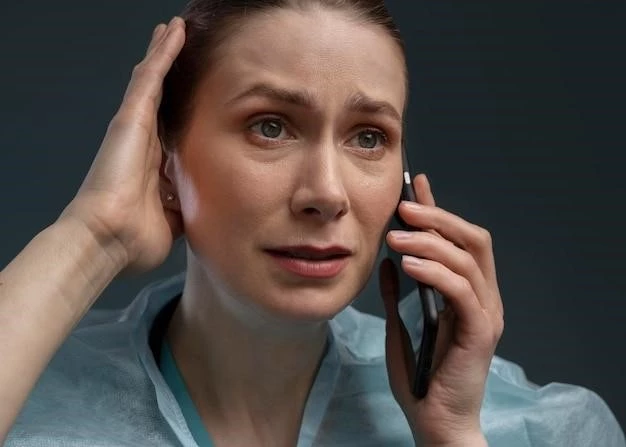Disease ౼ Femoral Facial Syndrome
Femoral Facial Syndrome is a rare condition characterized by craniofacial abnormalities, limb anomalies, skeletal malformations, and developmental delays. This genetic disorder presents with distinct facial features and orthopedic issues. Individuals affected may require genetic counseling, physical therapy, and specialized medical treatment.
Introduction
Femoral Facial Syndrome, a rare genetic disorder, is characterized by a constellation of craniofacial abnormalities, limb anomalies, skeletal malformations, and developmental delays. This syndrome presents with unique facial features and orthopedic issues. Diagnosis often involves a detailed evaluation by a multidisciplinary medical team to assess the extent of the condition’s impact. Genetic counseling is crucial for understanding the hereditary aspects and potential risks for future generations.
Individuals with Femoral Facial Syndrome may experience challenges ranging from physical limitations due to limb malformations to cognitive delays associated with developmental issues; Treatment approaches often involve a combination of orthopedic interventions, physical therapy to enhance mobility and function, and medical management tailored to address specific symptoms.
Living with Femoral Facial Syndrome requires ongoing support and care to optimize quality of life. Through consistent medical monitoring, adaptive strategies, and access to specialized services, individuals affected by this syndrome can navigate the complexities of the condition with resilience. This article explores the varied aspects of Femoral Facial Syndrome, highlighting the importance of early diagnosis, proactive treatment, and holistic support for individuals and families facing this rare condition.
Symptoms and Diagnosis
Individuals with Femoral Facial Syndrome may present with a range of symptoms affecting both their facial features and skeletal structure. Common symptoms include craniofacial abnormalities such as cleft palate, underdeveloped cheekbones, and ear abnormalities. Limb anomalies such as shortening of the femur or other skeletal malformations are also prevalent in this condition.
Diagnosis of Femoral Facial Syndrome often involves a thorough physical examination, imaging studies like X-rays and MRIs, and genetic testing to confirm the presence of known genetic mutations associated with the syndrome. Medical professionals collaborate to identify and assess the specific characteristics of the syndrome present in each individual, tailoring treatment plans accordingly.
It is essential for healthcare providers to consider the holistic impact of Femoral Facial Syndrome on an individual’s health and well-being. By recognizing and addressing the diverse array of symptoms, clinicians can provide comprehensive care and support for patients with this rare condition. Early detection through careful evaluation and diagnostic procedures is crucial in managing the complex challenges associated with Femoral Facial Syndrome.
Genetic Counseling
Genetic counseling plays a pivotal role in the management of Femoral Facial Syndrome, providing individuals and families with essential information regarding the genetic basis of the condition. Genetic counselors offer support, guidance, and education on the inheritance patterns, recurrence risks, and potential implications for family planning.
Through genetic counseling sessions, individuals can gain a deeper understanding of the underlying genetic factors contributing to Femoral Facial Syndrome. Counselors help interpret genetic test results, discuss the possible impact on future generations, and aid in decision-making processes related to genetic testing for family members.
Moreover, genetic counseling empowers individuals affected by or at risk of Femoral Facial Syndrome to make informed choices about their healthcare journey. By fostering open communication and providing tailored resources, genetic counselors help navigate the complexities of the condition and offer personalized support to address the psychosocial and emotional aspects of living with a genetic disorder.
Orthopedic Issues
Individuals with Femoral Facial Syndrome often face orthopedic challenges due to skeletal malformations, limb anomalies, and musculoskeletal issues. Orthopedic specialists play a crucial role in assessing and managing these complications to improve function and mobility.
Treatment of orthopedic issues in Femoral Facial Syndrome may involve a multidisciplinary approach, including surgical interventions to address limb length discrepancies, corrective procedures for bone deformities, and orthotic devices to promote proper alignment and support.
Orthopedic surgeons collaborate with other healthcare professionals, such as physical therapists and rehabilitation specialists, to enhance the overall musculoskeletal health and well-being of individuals affected by the syndrome. Customized treatment plans are tailored to the unique needs of each patient, aiming to optimize quality of life and functional outcomes.
Developmental Delays

Developmental delays are common in individuals with Femoral Facial Syndrome, impacting various aspects of motor skills, cognition, and communication. Early identification and intervention are vital in addressing these delays and promoting optimal development.
Children with the syndrome may benefit from early intervention services, including speech therapy, occupational therapy, and educational support tailored to their specific needs. These interventions aim to enhance developmental milestones, social interactions, and adaptive skills.
Collaboration among healthcare providers, educators, and families is essential in creating a comprehensive care plan that addresses the developmental challenges associated with Femoral Facial Syndrome. By implementing individualized strategies and consistent monitoring, individuals can progress in their developmental journey with appropriate support and guidance.
Physical Therapy and Medical Treatment
Physical therapy plays a crucial role in the comprehensive treatment of individuals with Femoral Facial Syndrome, focusing on improving mobility, strength, and functional abilities. Therapists work closely with patients to enhance motor skills and promote independence in daily activities.
Medical treatment for Femoral Facial Syndrome may include a combination of orthopedic interventions, pain management strategies, and specialized therapies to address specific symptoms and complications. Medications, surgical procedures, and assistive devices are utilized based on individual needs and goals.
By integrating physical therapy and medical treatment into a coordinated care plan, healthcare providers aim to optimize the overall well-being of individuals affected by the syndrome. This multidisciplinary approach ensures that patients receive comprehensive support to manage symptoms, improve quality of life, and enhance functional outcomes.
Living with Femoral Facial Syndrome
Living with Femoral Facial Syndrome requires individuals and families to navigate a range of physical, emotional, and social challenges associated with the condition. Coping strategies and support networks play a vital role in enhancing resilience and promoting well-being.
Adaptive techniques and assistive technologies can aid individuals in managing daily tasks and overcoming physical limitations resulting from limb anomalies and skeletal malformations. Access to specialized services, such as counseling, educational resources, and community support groups, can provide valuable assistance.
Educational accommodations, vocational training, and opportunities for social integration are essential components in enhancing the quality of life for individuals with Femoral Facial Syndrome. By fostering a supportive environment that promotes inclusion and empowerment, individuals can thrive and lead fulfilling lives despite the challenges posed by the syndrome.
Conclusion
In conclusion, Femoral Facial Syndrome presents a complex array of craniofacial abnormalities, limb anomalies, and developmental delays that require a multidisciplinary approach to diagnosis and treatment. Genetic counseling is instrumental in guiding families through the hereditary implications of the syndrome.
Orthopedic issues and developmental delays associated with the condition necessitate tailored interventions, including physical therapy and medical treatment, to optimize functional outcomes and enhance quality of life. Addressing the challenges of living with Femoral Facial Syndrome requires a holistic approach that prioritizes individualized care and support.
By promoting early detection, proactive management, and ongoing education, healthcare professionals can empower individuals affected by the syndrome to navigate their unique healthcare journey with resilience and determination. Through collaborative efforts and comprehensive care strategies, individuals with Femoral Facial Syndrome can lead fulfilling lives and strive towards their full potential.
